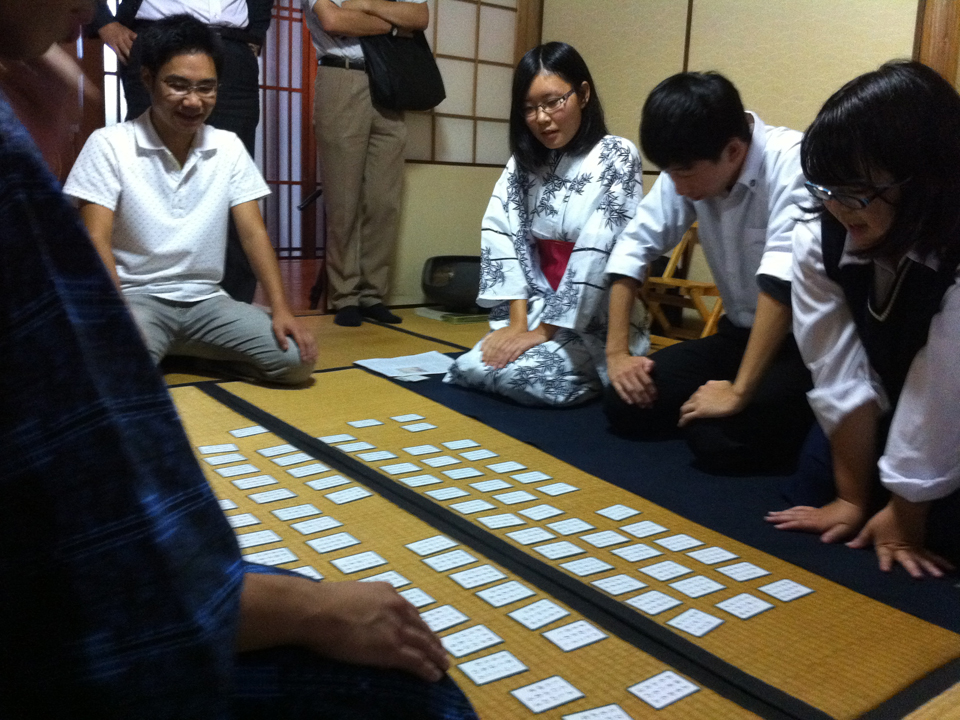Filtered By: Lifestyle
Lifestyle
Japanese youth keep tradition alive and kicking with Hyakunin Isshu card game
Text and Photo by ANDREI MEDINA, GMA News

Sakai Higashi Highschool club members enjoy a game of Hyakunin Isshu after regular school hours in Sakai City, Japan.
SAKAI CITY, Japan – Even with all the technological advancements the world has witnessed, there are still Japanese youth who choose to practice the traditional arts of their nation.
In Sakai, which is a hotbed for Japanese cultural activities such as tea ceremonies and wagashi making, two highschools are actively participating in keeping tradition up with modern times.
These students spend a few hours after school in clubs instead of playing popular video games during their free time. This goes to show that even as a nation that is among the global market leaders when it comes to technology and games, they still place great importance in preserving their rich culture.
During the Sakai-ASEAN week 2014, we visited the two highschools that practiced two important Japanese traditions: the art of Kado flower arrangement and Hyakunin Isshu, a Japanese card game.
Hyakunin Isshu
In Sakai Higashi Highschool, students stay after class to participate in club activities involving Hyakunin Isshu, which is a traditional Japanese card game.
A game usually consists of six players who play individually, or else form teams depending on the rules set.
There are one hundred cards laid out in front of the players, who assume the traditional Japanese sitting position on a tatami mat.
The players or the Torite (person taking cards) will listen to the Yomite (person reading) who will sing out the first part of a Tanka (Japanese poetry).
After hearing the Tanka, the Torite will then attempt to identify the second part of the poem, which is among the laid out cards.
Winning a round of Hyakunin Isshu is simple: the first player who touches the correct card after or while the Tanka is being sung wins.
If a player touches the wrong card, he or she will lose a turn.
According to the students, the game was first started in Japan over a millenium ago and originated from Portuguese influence.
Today, there are even national competitions for Hyakunin Isshu, which are usually held during the month of January. — VC, GMA News
The media tour for the 2014 Sakai-ASEAN Week from October 7 to 13, 2014 was organized by its Executive Committee and sponsored by the city government of Sakai in cooperation with several private groups.
More Videos
Most Popular



